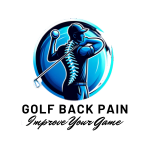Optimizing Sleep Patterns For Golf Back Pain Recovery
In the labyrinth of life, pain often plays the unwanted intruder, especially when you’re an ardent golfer dealing with debilitating back pain. “Optimizing Sleep Patterns For golf back pain Recovery” craftily weaves scientific facts and practical advice into tips to help you attain that elusive, restorative night’s sleep. This enlightening article sets out to elevate your understanding of the unique relationship between sleep patterns and back pain mitigation and offers valuable insights into how altering your sleep habits may well be the ace shot to swing you back into relief and recovery.
Understanding Golf Back Pain
If you’ve ever ventured onto the golf course and swung a club, you understand the allure of the game. However, alongside the joy of hitting that perfect shot, you might have experienced discomfort in your back. Golf, although perceived as a harmless sport, can unfortunately lead to back pain.
The Causes of Golf Back Pain
The culprit of golf back pain is typically a combination of improper swings, poor posture, and repetitive movement. Each time you swing, your spine twists, which can result in strain or injury if not performed correctly. Additionally, the repeated bending to tee up or pick up balls stresses your back. Over time, these actions may lead to the onset of persistent back discomfort.
Long Term Effects of Untreated Golf Back Pain
If untreated, the once sporadic back pain can evolve into a chronic condition. This transformation not only limits your ability to enjoy golf but affects your overall quality of life. Chronic back pain can hinder your mobility, potential to engage in different activities, and even your sleep quality.
How Golf Swing Can Affect Your Back
The art of a golf swing is a dynamic, complex movement that requires coordination, flexibility, and strength. At the core of it, your back is pivotal in ensuring a powerful swing, making it susceptible to strain or injury. Incorrect swing techniques can lead to unnecessary torque on your spine, leading to discomfort and, over time, chronic pain.
The Importance of Sleep in Pain Recovery
Sleep is a natural healer, working its magic when the body is at rest. Its importance in maintaining health and facilitating recovery from afflictions such as golf back pain cannot be overstated.
Benefits of Quality Sleep for Health
Quality sleep carries a multitude of benefits for health. It boosts your immune system, steadies your heartbeat, sharpens your mind, and even rejuvenates your skin. Notably, it also plays a critical role in pain recovery. During sleep, your body has the opportunity to repair damaged cells and strengthen its defenses.
Effect of Sleep on Muscle Recovery and Growth
Adequate sleep facilitates muscle recovery and growth, which is critical in recovery from back pain. It is during sleep that our bodies produce Human Growth Hormone (HGH), responsible for cell regeneration and repair. Therefore, a good night’s rest equates to the necessary rebuilding and strengthening of back muscles.
How Lack of Sleep Can Affect Pain Tolerance
Inadequate rest can have a startling effect on your pain tolerance. Lack of sleep can amplify pain sensitivity, meaning even mild discomfort can be perceived as intense pain. For those recovering from golf back pain, quality rest can mean the difference between tolerable discomfort and debilitating pain.
Effects of Disrupted Sleep Patterns
Sleep is not just about quantity; it’s about quality too. Disrupted sleep patterns can lead to several health implications, including exacerbated pain.
How Disrupted Sleep Patterns Impact Health
Erratic sleep patterns can impact your health significantly. They interfere with your body’s internal clock, leading to issues such as weakened immunity, decreased cognitive function, and even heart disease. They also contribute to the release of stress hormones that can worsen chronic pain conditions like golf back pain.
Effects of Poor Sleep on Back Pain
Poor sleep can increase inflammation in your body, providing an ideal environment for pain to thrive. It can make your back pain seem worse than it is, impede your rehabilitation, and significantly decrease your quality of life.
Connection between Sleep Disturbances and Chronic Pain
Sleep disturbances and chronic pain often find themselves caught in a vicious cycle. Chronic pain can disrupt your sleep, and persistent sleep disruptions can exacerbate your pain. In many cases, addressing one can significantly alleviate the other.

Techniques to Optimize Sleep Patterns
Your journey towards pain recovery can be significantly influenced by simple changes in your sleep patterns. Here’s how to optimize your sleep.
Creating the Ideal Sleep Environment
Your sleep environment significantly impacts your sleep quality. An ideal setting should be dark, quiet, and cool. Your mattress and pillows ought to support your back and neck appropriately to prevent further strain. Thus, a serene sleep environment can encourage a deep, restorative sleep.
The Role of Regular Sleep Schedule
Establishing a regular sleep schedule sets your body’s internal clock, thus optimizing your sleep patterns. Consistency reinforces your body’s sleep-wake cycle and can help you fall asleep and stay asleep throughout the night. Consequently, a beneficial cycle of quality sleep and reduced pain can ensue.
Importance of Limiting Screen Time Pre-Sleep
Limiting screen time before bed is crucial in enhancing sleep quality. Electronic devices emit blue light, which can interfere with your body’s production of sleep-inducing hormone melatonin. By reducing your screen time pre-sleep, you can foster a sleep-friendly environment that promotes pain recovery.
Role of Diet in Optimizing Sleep
We’ve all heard it said: ‘you are what you eat’. This statement holds when it comes to your diet’s impact on your sleep quality.
Impact of Diet on Sleep Quality
What you consume can have a considerable effect on your sleep patterns. A balanced diet promotes good sleep, while an unhealthy diet can cause sleep problems. Foods and drinks high in caffeine or sugar can disrupt your sleep, whereas those rich in tryptophan, magnesium, and melatonin can enhance it.
Food Items That Promote Good Sleep
Certain foods can assist in promoting a good night’s sleep. Cherries, fatty fish, nuts, and milk are rich in sleep-promoting nutrients and hormones. Incorporating these into your diet can help you establish a healthy sleep routine and aid in golf back pain recovery.
Role of Hydration in Sleep Optimization
While it’s essential not to overload your bladder before bedtime, good hydration is key for a deep and refreshing sleep. Dehydration can cause dry mouth and throat, night sweats, and leg cramps, causing disruptions to your sleep. Hence, adequate water consumption is an essential player in optimizing your sleep patterns.
Exercise and its Impact on Sleep
Regular exercise can do wonders for your overall health and your sleep quality, fostering an environment conducive to pain recovery.
Benefits of Regular Exercise for Sleep
Regular exercise can help you fall asleep faster, sleep longer, and achieve deeper sleep. It can also help manage stress and anxiety, which are often associated with sleep problems and chronic pain. Thus, incorporating regular physical activity into your routine can enhance your sleep and accelerate your pain recovery journey.
Best Time to Exercise for Optimal Sleep
The timing of your workouts can impact your sleep. Generally, moderate-intensity exercise performed in the morning or afternoon can help improve sleep quality. However, high-intensity exercise close to bedtime can have the opposite effect. Optimal timing will depend on your personal chronotype and schedule.
Pre-Sleep Exercise Routines to Avoid
While regular exercise is beneficial, certain routines can hinder your sleep if done just before bedtime. High-intensity workouts, such as spinning or intense cardiovascular routines, can increase your heart rate and leave you too stimulated to sleep. Swap these with gentler activities like yoga or stretching in the evening to promote rest.
Relaxation Techniques for Better Sleep
Harnessing the power of relaxation techniques can significantly enhance your sleep quality and foster a conducive environment for golf back pain recovery.
Benefits of Relaxation Techniques
Relaxation techniques can help you manage stress, relax your muscles, and create a positive mood – encouraging a deep, refreshing sleep. They can also alleviate pain by releasing tension and improving circulation.
Practicing Mindfulness Meditation
Mindfulness meditation involves actively focusing on the present and accepting it without judgment. Regular practice can enhance your sleep quality by reducing stress, making you more mindful of your body, and helping you relax.
The Impact of Deep-Breathing Techniques on Sleep
Deep-breathing techniques can prepare your body for a good night’s sleep by slowing your heart rate and lowering your blood pressure. This relaxation method can act as a natural tranquilizer for your body, promoting better sleep and pain recovery.
Treatment Options for Golf Back Pain
Treating golf back pain involves assessing all possible methods ranging from traditional to alternative treatments.
Physical Therapy for Golf Back Pain
Physical therapy can confidently address golf back pain. It promotes strength, flexibility, and improved posture, which can help alleviate pain. Tailored exercises can address areas of weakness and instability, enhancing both your golf game and your comfort.
Use of Medication in Treating Golf Back Pain
Medication can offer temporary relief for golf back pain. Over-the-counter pain relievers and anti-inflammatory drugs can provide short-term respite and could be used in conjunction with other treatments. However, it’s essential to use medication correctly and consult with a healthcare professional.
Alternative Treatments for Golf Back Pain
Alternative treatments such as massage, yoga, acupuncture, or chiropractic treatment can significantly help with golf back pain. They work by releasing tension, aligning the spine, and boosting the body’s natural healing process. Each treatment comes with its benefits and can be an effective adjunct to conventional treatments.
Preventive Measures for Golf Back Pain
Preventing golf back pain is just as crucial as treating it. Let’s look at some steps you can take to keep the discomfort at bay.
Proper Golf Swing Techniques
Mastering proper golf swing techniques is crucial in preventing back pain. Improving your swing mechanics not only enhances your game but also reduces the impact on your spine, decreasing the potential for injury and pain.
Importance of Regular Breaks and Stretching During Golf
Taking regular breaks and incorporating stretching exercises into your rounds can make a world of difference in preventing golf back pain. It gives your body the much-needed time to rest and recover, reduces tension, and keeps your muscles flexible.
Importance of Using Right Golf Equipment
Using the right golf equipment tailored to fit your body and level of expertise can help maintain your posture and reduce the risk of straining your back. This includes selecting the right clubs and wearing appropriate shoes that provide suitable support and comfort.
The Connection Between Sleep, Pain, and Mental Health
Your sleep, pain, and mental health are tightly interwoven. Let’s delve deeper into these connections.
How Poor Sleep Can Impact Mental Health
Poor sleep can significantly impact your mental health, leading to issues such as anxiety, depression, and cognitive impairments. It can also magnify the symptoms of chronic pain, creating a detrimental cycle that impacts all aspects of your life.
The Role of Stress Management in Pain Recovery
Stress can interfere with your sleep and exacerbate your pain, slowing down your recovery. Effective stress management techniques such as mindfulness, breathing exercises, and yoga can aid in breaking this cycle, promoting a better night’s sleep, and aiding in pain recovery.
How Mental Health Affects Sleep and Pain Perception
Your mental health plays a crucial role in both your sleep quality and pain perception. Anxiety and depression can lead to sleep disturbances and increased sensitivity to pain. Addressing your mental health can, therefore, improve your sleep quality and aid in your pain recovery process.
In summary, adopting a holistic approach incorporating sleep optimization, preventative measures, suitable treatments, relaxation techniques, and a proper diet can significantly aid in the recovery from golf back pain. Remember, it’s essential to consult with a healthcare professional before starting any treatment plan. It may be a long journey, but with persistence and patience, better days filled with pain-free golf games and quality sleep are on the horizon.

